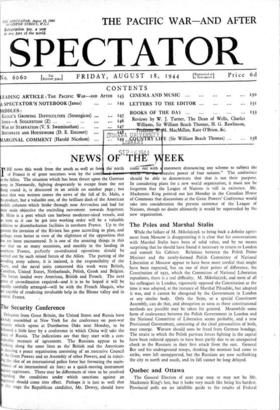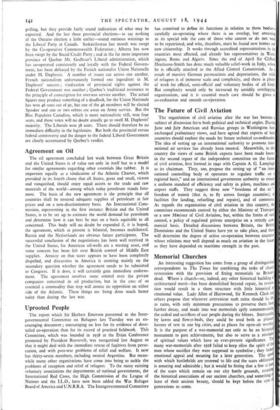Quebec and Ottawa
The General Election of next year may or may not be Mr. Mackenzie King's last, but it looks very much like being his hardest. Provincial polls are no infallible guide to the results of Federal
polling, but they provide fairly sound indications of what may be expected. And the last three provincial elections—to say nothing of the Ontario election a little earlier—sound ominous warnings to the Liberal Party in Canada. Saskatchewan last month was swept by the Co-operative Commonwealth Federation ; Alberta has now been swept by the Social Credit Party ; and in the far more important province of Quebec Mr. Godbout's Liberal administration, which has co-operated consistently and loyally with the Federal Govern- ment, has been defeated by the French nationalist Union Nationelle under M. Duplessis. A number of issues cut across one another. French nationalism unfortunately formed one ingredient in M. Duplessis' success ; vindication of provincial rights against the Federal Government was another ; Quebec's traditional resistance to the principle of conscription for overseas service another. The actual figures may produce something of a deadlock, for the Union Nationale has won 46 seats out of 91, but one of the 46 members will be elected Speaker and one or two others are away on Army service. But the Bloc Populaire Canadien, which is more nationalistic still, won four seats, and those votes will no doubt usually go to swell M. Duplessis' majority. The Liberals won 38 seats. There should therefore be no immediate difficulty in the legislature. But both the provincial versus federal controversy and the danger to the federal Liberal Government are clearly accentuated by Quebec's verdict.























 Previous page
Previous page